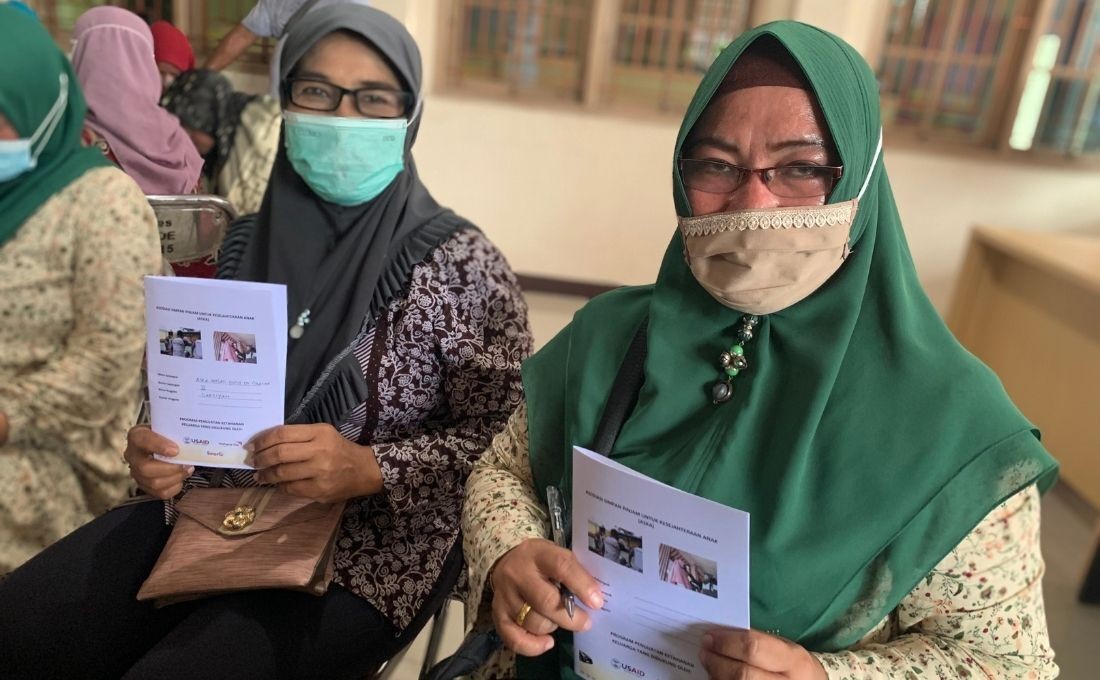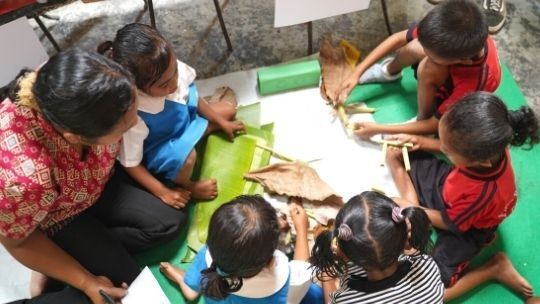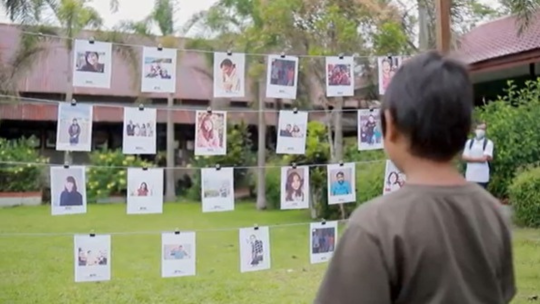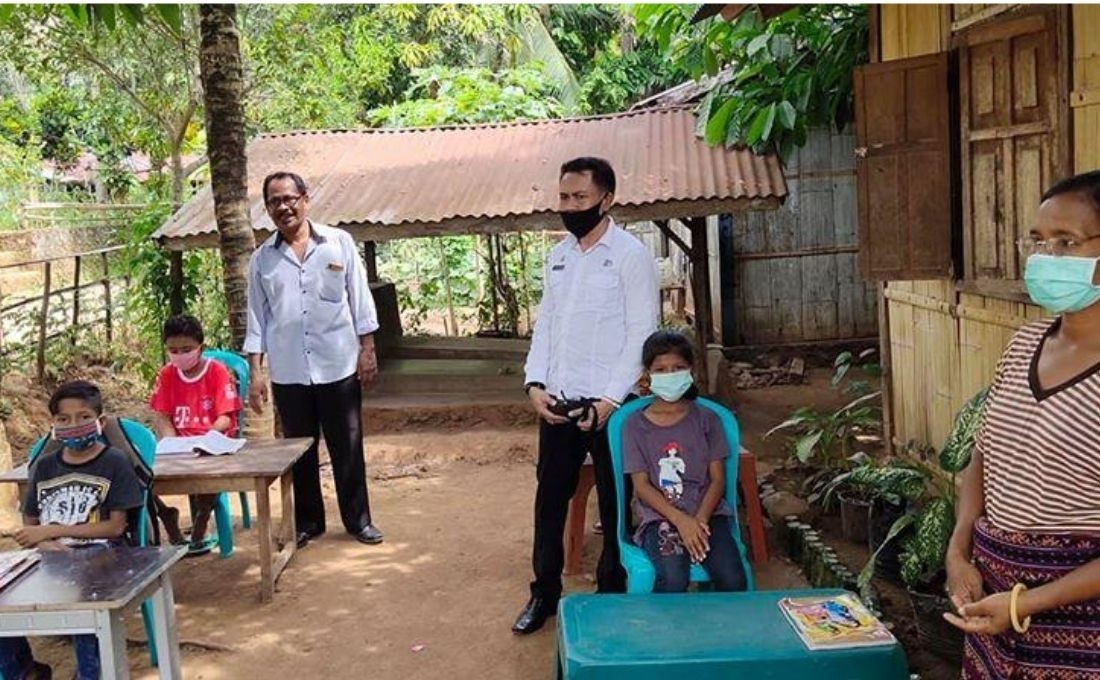Becoming Disaster Resilient from an Economical Viewpoint

An area/village can be said to be a Disaster Resilient Village, which is an area that has the independent ability to adapt and deal with potential disaster threats, and to recover quickly from adverse impacts. To realize these criteria, Wahana Visi Indonesia (WVI) is present through the SinerGi project by approaching the assisted areas to increase awareness of their role as citizens/communities, especially vulnerable groups in resource management.
One of them was carried out in Cirarab Village, Tangerang through the Socialization Program. The outreach program was carried out to provide an overview and information about disaster resilience to (Family Welfare Development) PKK women, especially in terms of the economy through ASCA (Accumulating Savings and Credit Association) activities.
Masliha, head of the PKK in Cirarab Village, said that this program is an input for residents, especially (Family Welfare Development) PKK women, in making savings and loans which can later be used for emergency funds. Moreover, Cirarab Village is one of the villages that are prone to disasters.
"Disasters happen once a year, yes, once a year there must be a flood, and two years ago there was also a disaster but not a flood, it was a hurricane that caused houses to collapse, trees fell and trees that fell directly hit the house and eventually damaged," said Masliha.
Apart from the socialization of the ASCA program, the members of the PKK Cirarab village were also given information on CVA (Citizen Voice & Action). In this program, residents are provided with information about advocacy that will be used as a bridge to approach business owners (factories/companies) in the village.
"Because until now the funds related to CSR (Corporate Social Responsibility) themselves as residents of Cirarab Village have many factories, but the CSR funds themselves are diverted to other areas, I see. Indeed, every year there are aid funds, but for orphan activities or compensation for orphans. There is no disaster itself yet, while the disasters here are routine, such as floods, and sometimes there are additional disasters such as hurricanes,” explained Masliha.
Masliha hopes that with the ASCA program and the formation of groups, the women in the village can manage their finances better. As well as a sense of solidarity and trust between each other can grow and close.
Written by: Hana Priscilla, Monev Officer of the SinerGi Project, Wahana Visi Indonesia



